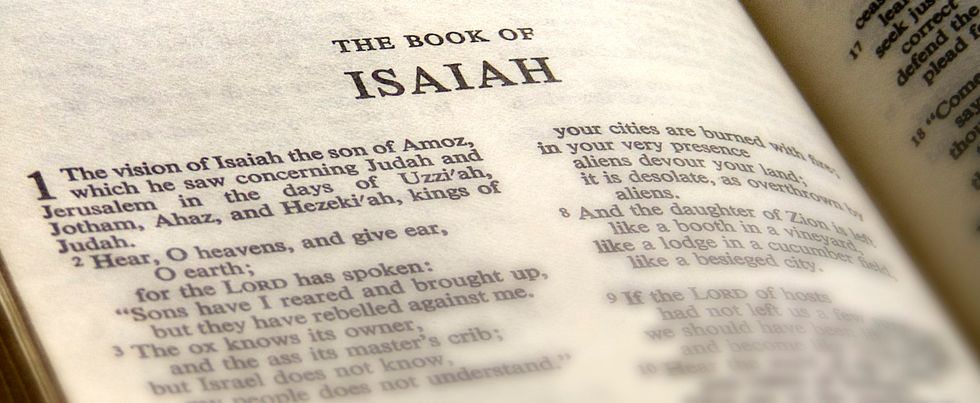When reading the books of the prophets, one must look beyond the rapidly changing characters and settings to discern the unified message the books propagate. Not deriving a message from the prophets may leave the reader with an incomplete understanding of the works, ultimately ignoring the fact that the prophets offer a cohesive residual message about God’s intentions for His people and for the nations. Arguably the most important of these messages is that the Lord has devised a way to save a fallen man from judgement by promising a messiah who will bring humanity to overcome death. Of all of the prophets, the book that most explicitly and completely communicates this message is the Book of Isaiah.
In Isaiah, the Messiah is detailed meticulously. From their origins as a Nazarene, to their status of divinity, to their role as a suffering servant designated to bear the sin of mankind upon him, the Messiah’s synopsis is found most wholly in Isaiah. Regarding the Messiah’s works, it is stated that, “I will put my Spirit on him, and he will bring justice to the nations,” and that “he will not falter or be discouraged till he establishes justice on earth. In his teaching the islands will put their hope.” (Isa. 42:1-4 NIV) From this, it is easily gathered that an anointed messiah will be a figure capable of bringing justice to the nations. The nations will entrust themselves to this figure, presumably with the expectation that said messiah can make the sinful nations right in the eyes of God so that they will not experience death in the Lord’s presence. Later in the Book of Isaiah, God is attributed as saying that “I will keep you and will make you to be a covenant for the people and a light for the Gentiles.” (Isa. 42:6) As mentioned previously, the Messiah will serve as a savior for the nations, or a “light for the Gentiles” as per Isaiah 42:6. However, this verse also promises something new: that the Messiah will serve as deliverer of a new covenant for the nation of Israel. From this verse, it becomes apparent that God not only plans to use a messiah to redeem the nations, but to dictate a new covenant with Israel; one to hopefully curb the sin that rendered previous covenants ineffectual. As we all know, sin is still present, but the Lord's intentions are clear.
The books of the prophets, segmented as they may be, impart to the reader that the Lord looks to save sinners from the coming judgment. Realized through his son, God will solve the issue of humanity’s exile from Him. The prophets repeatedly stress this message to the audience, in some ways more directly than others. In that regard, the reader can readily depend on the book of Isaiah to provide a wholesome understanding of this message.
















